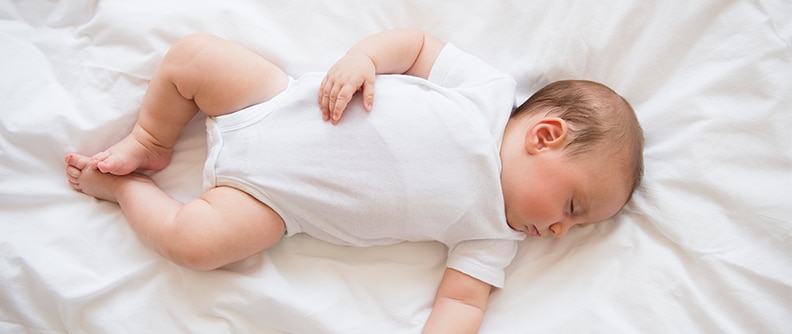Sleep is just as important for your new baby as it is for you. It helps your baby’s brain develop properly and improves their mood and focus.
It’s common for newborns to sleep between 14 and 17 hours a day. Your baby may be awake for a few hours, then nod back off. As they grow, however, you’ll notice changes to their sleep routine.
At about 3 months, your baby should begin sleeping between 6 and 8 hours in a row every night. They are also likely to take several naps throughout the day. Between 6 and 9 months, they may sleep for up to 12 hours at a time.
How can you tell if your baby’s sleepy?
You’ll be able to tell when your baby is tired. They might cry, rub their eyes, or be fussier than usual. These are all signs that it’s time for a snooze.
Put your baby in their crib when you notice they’re getting tired. Turn down the lights and keep the room as quiet as possible.
How can you help your baby sleep?
It’s a good idea to develop a bedtime routine for your baby. Spend some quiet time together while doing things to help them relax, like bathing them or reading to them. Give them their last feeding of the day before you put them in the crib. Babies shouldn’t go to bed with a bottle.
If your baby wakes up at night for a feeding, keep the room dark and quiet. Always focus on the feeding — you shouldn’t play with your baby during night feedings. This overstimulates them and makes it harder for them to fall back asleep.
What safety tips should you keep in mind?
Babies still need to be protected even when they’re sleeping. To make sure your baby stays safe:
- Always put your baby to sleep on their back. This helps reduce the risk of sudden infant death syndrome (SIDS).
- Don’t sleep in the same bed as your baby. Your baby should sleep in their own crib.
- Dress your baby in warm clothing, but take care they don’t get overheated. You may want to use a fan in your baby’s room to help keep it comfortable.
- Keep the crib free of loose bedding, stuffed animals, and toys. It’s not recommended to use bumper pads or other sleep positioners.
- Don’t allow your baby to sleep on sofas, recliners, pillows, cushions, or other soft surfaces.
- Along with a baby monitor, check on your baby from time to time to make sure they’re safe.
Sleep training and your baby
Babies sometimes need a little help with their sleep routine. If you’re concerned about your baby’s sleep patterns, ask your clinician for guidance. If necessary, they can help you decide whether sleep training is a good idea.
